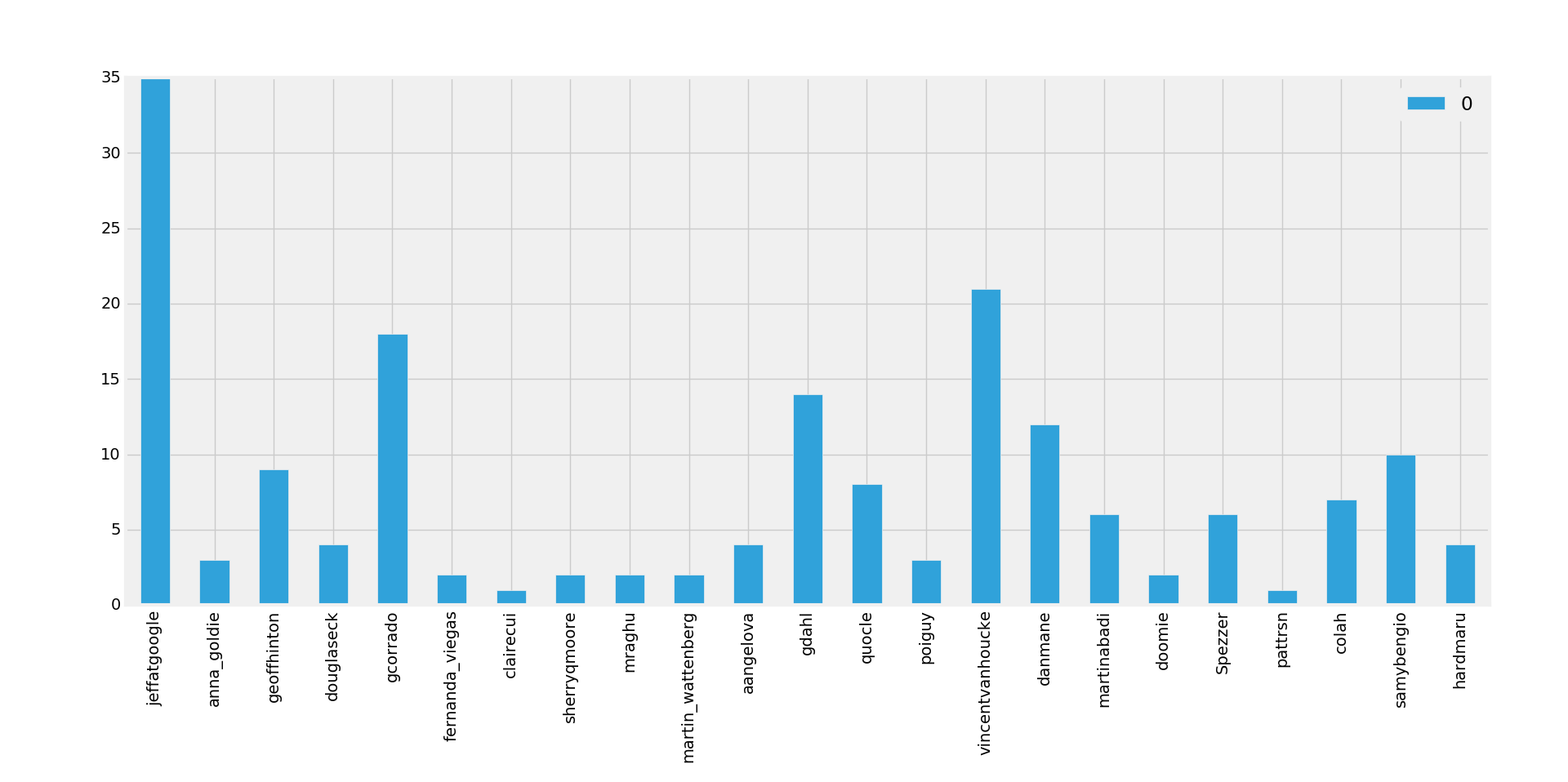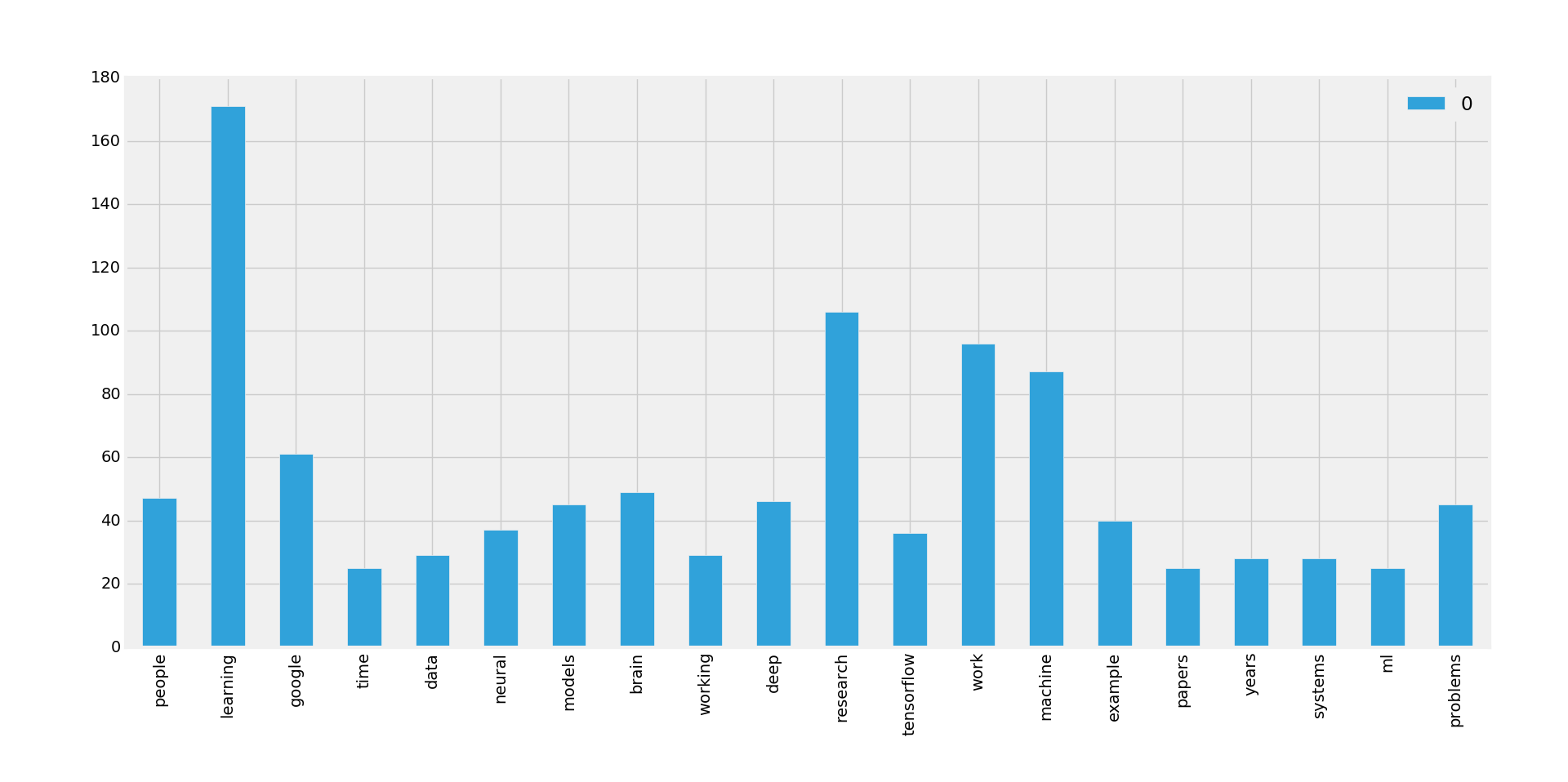Read through Google Brain’s AMA on r/machinelearning if you have forgotten what true yearning feels like. Man what a great job to have. Maybe one day guys, maybe one day.
Education Levels at Google Brain
“Do you need a PHD?” is a painfully common question asked of ML researchers at Google, and the answer is pretty clear. No, you dont need one because 22% of the Google Brain team don’t have one, but the clear majority do have one.
Chris Olah is a clear outlier, having not completed a university degree. Damn impressed with you Chris.
-
Doctorate of Philosophy Degrees: 78%
-
Masters Degrees: 34%
-
Bachelors Degrees: 95%
About 5% of the questions in the AMA were related to education for a career in ML. That’s around 40 questions, all with about 1 upvote each.
Most Responsive Googler = Jeff Dean

Googler’s Most Used Words

Highest Upvoted Answer:
How was ‘Dropout’ conceived? Was there an ‘aha’ moment?
There were actually three aha moments. One was in about 2004 when Radford Neal suggested to me that the brain might be big because it was learning a large ensemble of models. I thought this would be a very inefficient use of hardware since the same features would need to be invented separately by different models. Then I realized that the "models" could just be the subset of active neurons. This would allow combinatorially many models and might explain why randomness in spiking was helpful.
Soon after that I went to my bank. The tellers kept changing and I asked one of them why. He said he didn't know but they got moved around a lot. I figured it must be because it would require cooperation between employees to successfully defraud the bank. This made me realize that randomly removing a different subset of neurons on each example would prevent conspiracies and thus reduce overfitting.
I tried this out rather sloppily (I didn't have an adviser) in 2004 and it didn't seem to work any better than keeping the squared weights small so I forgot about it. Then in 2011, Christos Papadimitriou gave a talk at Toronto in which he said that the whole point of sexual reproduction was to break up complex co-adaptations. He may not have said it quite like that, but that's what I heard. It was clearly the same abstract idea as randomly removing subsets of the neurons. So I went back and tried harder and in collaboration with my grad students we showed that it worked really well.
Method & Final Thoughts
This information was produced using simple tools from praw, matplotlib, and nltk. Education information was gathered manually (eugh).
I was really encouraged to read about the diversity within the Google Brain team. Having come from a design and architecture background myself, with a fondness for philosophy and literature, it’s great to see that intellectual diversity is valued highly.